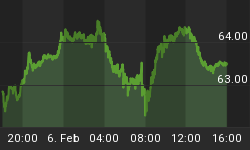The debt ceiling debate is providing plenty of opportunity for political theater in Washington. Proponents of raising the debt ceiling are throwing around the usual scare tactics and misinformation in order to intimidate opponents into accepting more debt and taxes. It is important to distinguish the truth from the propaganda.
First of all, politicians need to understand that without real change default is inevitable. In fact, default happens every day through monetary policy tricks. Every time the Federal Reserve engages in more quantitative easing and devalues the dollar, it is defaulting on the American people by eroding their purchasing power and inflating their savings away. The dollar has lost nearly 50% of its value against gold since 2008. The Fed claims inflation is 2% or less over the past few years; however economists who compile alternate data show a 9% inflation rate if calculated more traditionally. Alarmingly, the administration is talking about changing the methodology of the CPI calculation yet again to hide the damage of the government's policies. Changing the CPI will also enable the government to avoid giving seniors a COLA (cost of living adjustment) on their social security checks, and raise taxes via the hidden means of "bracket creep." This is a default. Just because it is a default on the people and not the banks and foreign holders of our debt does not mean it doesn't count.
Politicians also need to acknowledge that our debt is unsustainable. For decades our government has been spending and promising far more than it collects in taxes. But the problem is not that the people are not taxed enough. The government has managed to run up $61.6 trillion in unfunded liabilities, which works out to $528,000 per household. A tax policy that would aim to extract even half that amount of money from American families would be unimaginably draconian, and not unlike attempting to squeeze blood from a turnip. This is, unequivocally, a spending problem brought about by a dramatically inflated view of the proper role of government in a free society.
Perhaps the most abhorrent bit of chicanery has been the threat that if a deal is not reached to increase the debt by August 2nd, social security checks may not go out. In reality, the Chief Actuary of Social Security confirmed last week that current Social Security tax receipts are more than enough to cover current outlays. The only reason those checks would not go out would be if the administration decided to spend those designated funds elsewhere. It is very telling that the administration would rather frighten seniors dependent on social security checks than alarm their big banking friends, who have already received $5.3 trillion in bailouts, stimulus and quantitative easing. This instance of trying to blackmail Congress into tax increases by threatening social security demonstrates how scary it is to be completely dependent on government promises and why many young people today would jump at the chance to opt out of Social Security altogether.
We are headed for rough economic times either way, but the longer we put it off, the greater the pain will be when the system implodes. We need to stop adding more programs and entitlements to the problem. We need to stop expensive bombing campaigns against people on the other side of the globe and bring our troops home. We need to stop allowing secretive banking cartels to endlessly enslave us through monetary policy trickery. And we need to drastically rethink government's role in our lives so we can get it out of the way and get back to work.















